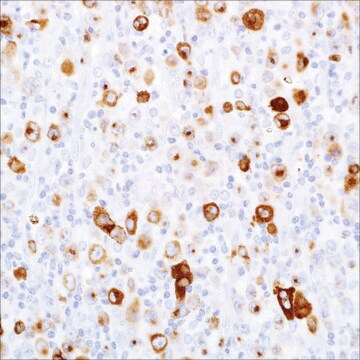293237
Ethylene glycol
spectrophotometric grade, ≥99%
Synonym(s):
1,2-Ethanediol
About This Item
Recommended Products
grade
spectrophotometric grade
Quality Level
vapor density
2.1 (vs air)
vapor pressure
0.08 mmHg ( 20 °C)
Assay
≥99%
form
liquid
autoignition temp.
752 °F
expl. lim.
15.3 %
technique(s)
UV/Vis spectroscopy: suitable
impurities
<0.050% water
refractive index
n20/D 1.431 (lit.)
bp
195-198 °C
mp
−13 °C (lit.)
density
1.113 g/mL at 25 °C (lit.)
λ
H2O reference
UV absorption
λ: 210 nm Amax: 1.00
λ: 220 nm Amax: 0.40
λ: 250 nm Amax: 0.10
λ: 300 nm Amax: 0.01
SMILES string
OCCO
InChI
1S/C2H6O2/c3-1-2-4/h3-4H,1-2H2
InChI key
LYCAIKOWRPUZTN-UHFFFAOYSA-N
Looking for similar products? Visit Product Comparison Guide
Application
- Tandem affinity purification-mass spectrometry (TAP-MS) characterization of protein complexes
- Measurement of total protein content using a ninhydrin-based quantification method
Signal Word
Warning
Hazard Statements
Precautionary Statements
Hazard Classifications
Acute Tox. 4 Oral - STOT RE 2 Oral
Target Organs
Kidney
Storage Class Code
10 - Combustible liquids
WGK
WGK 1
Flash Point(F)
239.0 °F - open cup
Flash Point(C)
115 °C - open cup
Choose from one of the most recent versions:
Already Own This Product?
Find documentation for the products that you have recently purchased in the Document Library.
Customers Also Viewed
Our team of scientists has experience in all areas of research including Life Science, Material Science, Chemical Synthesis, Chromatography, Analytical and many others.
Contact Technical Service








